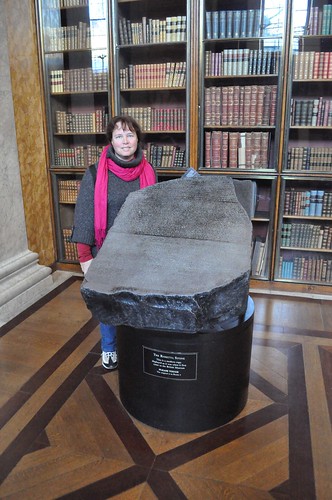Over the weekend I had a short piece in Maria Shriver’s Sunday Paper, which was dedicated to “the benefits of boredom.” My piece explains why “Rest and Boredom Are Scientifically Beneficial for Your Brain:”
We treat boredom as something that we can banish from our lives, like smallpox or polio. But boredom isn’t a disease. We don’t catch it. We cause it ourselves. Boredom is a state of mind, a reaction to the world rather than a reflection of the world. Sure, we can be bored standing in line or waiting around for a delayed plane. But we can also be bored of a once-favorite haunt, or under-stimulated by a too-familiar restaurant. Teenagers are geniuses at weaponizing boredom: kids are brilliant at being stubbornly bored by this dumb thing in this dumb place that their dumb parents have dragged them to.
This suggests that we can modulate even control, our reactions to situations that normally trigger boredom. But why should we? In a world where we can binge-watch television in line at the grocery store, why should we ever let those empty moments stay empty?
The answer is, those moments when we don’t have to focus on anything in particular, and can allow our minds to roam free, are actually quite valuable.
I first realized that boredom was a state of mind that we could control, and that when we’re young we weaponize it, when I was at the British Museum with my kids. We were at the Rosetta Stone, which of course is one of the great jewels in the Museum’s collection, and one of the single most important archaeological artifacts in all of history.
There was another family there, and while the parents were explaining why the Stone was important (and by implication why it was cool that they were there), one of the kids Was. Not. Having. It. He was determined to stay disengaged, no matter what. (It’s not the child in the striped shirt. That’s my son, six years ago!) It struck me just how forcefully the kid seemed to want to be unimpressed, and wanted his parents to know just how stupid the whole thing was. I doubted that he could come right out and say it, but conspicuous boredom made his feelings pretty clear.
This is probably something I did plenty of myself when I was younger. Of course there were times when I legitimately felt like there was nothing for me to do– this was my default state from roughly third grade through high school– but there were probably times when I was bored to make a point. For kids, who don’t have a lot of choice in their lives, the ability to be bored is probably a useful form of rebellion: you can drag me to all these places, but you can’t make me like it, even if it’s something really cool.
But like most of us, as I’ve gotten older and busier, I now have a greater appreciation for the value of those periods when I have nothing I need to focus on; it’s less something to flee from, and a little more a luxury. It can even be good for you.

